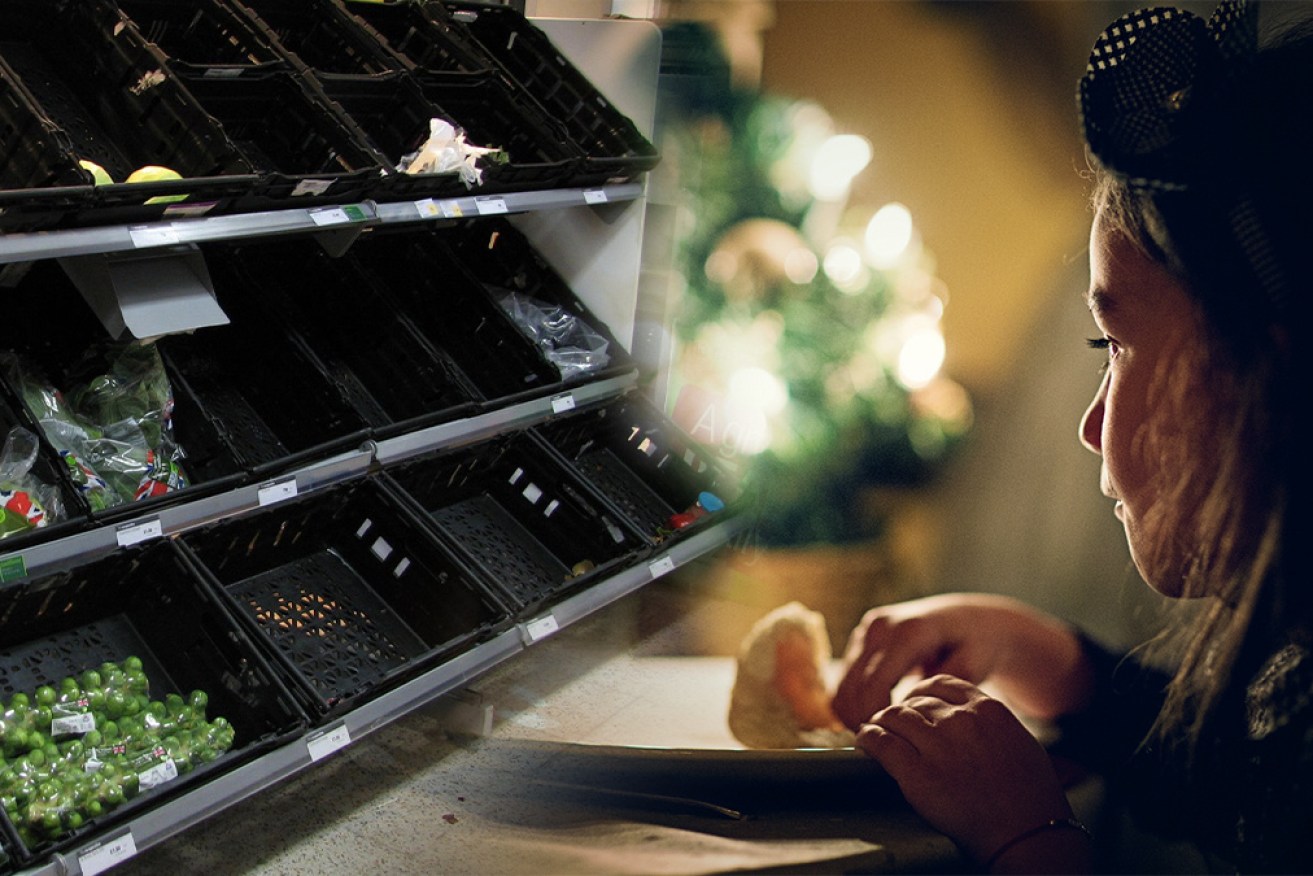UK says it has reached a deal with France – but fresh food fears remain


Fresh food is under threat in the UK due to Brexit tensions and France's freight ban. Photo: TND
British families could be facing canned soup for Christmas as freight bans and a looming ‘no-deal’ Brexit threaten the nation’s fresh food supply.
France shocked the United Kingdom on Sunday evening (local time) by banning British trucks for at least 48 hours after a new, highly infectious strain of COVID-19 was detected in England.
By Wednesday morning (Australian time), Britain’s transport minister Grant Shapps had hinted there had been some success in border negotiations UK leaders had had with French President Emmanuel Macron.
“Good progress today and agreement with the French Government on borders,” Mr Shapps tweeted.
“We will provide an update on hauliers later this evening, but hauliers must still NOT travel to Kent this evening.”
The move by France has continued to leave hundreds of stranded truck drivers waiting at the port or turning around for home with no option but to return with products that would otherwise be headed to mainland Europe.
And although there is no ban on French trucks entering the UK, French hauliers fear if they travel to London and south-east England – where British Health Secretary Matt Hancock said the new strain was “out of control” – then they would not be allowed to return home easily.
London and south-east England have been placed under a strict Tier 4 lockdown as coronavirus ravages the country.
In a further blow that has left the UK even more isolated, a growing number of European countries and India have closed their doors to British arrivals.
It’s a worrying turn of events that has left trucks in kilometres-long traffic jams, and people stranded at international airports.
But that’s not all.
The double whammy
To make matters worse, the emergency is unfolding just days out from the Brexit deadline on December 31.
Unless British Prime Minister Boris Johnson can strike a trade deal with the European Union within a week, the UK will leave the bloc’s informal membership without one.
This is the worst-case – and most likely – scenario, given thorny issues remain unresolved.
Under a ‘no-deal’ Brexit, the UK would be legally required to apply the same tariffs on EU goods as for other World Trade Organisation (WTO) members with which it does not have a free trade agreement.
Mr Johnson has tried to talk down the implications of a ‘no-deal’ Brexit, saying “WTO terms would be more than satisfactory for the UK”.
If only that were true.
Research suggests that the tariff effect of a no deal would lead to food price inflation of an estimated 3.1 per cent for fruit and 4 per cent for vegetables.
Tariff rates will be high for drinks and beverages (20 per cent) and even higher for meat and dairy (up to or higher than 40 per cent).
A ‘no-deal’ would also send shockwaves through financial markets, hurt European economies, complicate borders and disrupt supply chains.
The end result?
Rising prices on food at the exact time British shoppers are seeking to stockpile while COVID-19 rips through the population.
The bare necessities
About 10,000 trucks pass through Britain’s port of Dover every day, accounting for about 20 per cent of the country’s trade in goods.
“The essentials will be there, that’s the most important thing,” said Dr Flavio Macau, senior lecturer in supply chain management at Edith Cowan University.
“Those that were able to plan ahead of Christmas, who did their shopping at the beginning of the month, will be able to have as normal Christmas as possible.
“But those people who waited until the very last minute to get things ready … there is a strong possibility they will be eating canned soup for Christmas instead of fresh produce.”
If the crisis is not quickly resolved, supermarket giant Sainsbury’s has warned some products, like lettuce, cauliflower, broccoli and citrus fruits, could soon be in short supply.
About 40 per cent of vegetables and 37 per cent of fruit sold in the UK is imported from EU countries.
At this time of year, outside of Britain’s growing season, the country’s dependence on Europe is even more stark, with practically all of its tomatoes, lettuces and soft fruit coming from the Netherlands and Spain.
Dr Macau said France’s freight ban will really start to sting if it extends beyond 48 hours.
“With fresh produce, you have an inventory of stock for about three to four days,” he said.
“If you give two more days without anything getting into the UK from the EU, then you will start to see fresh produce disappearing from the shelves.”
Christmas dinner won’t be cancelled, but it means British shoppers will need to get creative in the kitchen.
“Maybe you can’t find tomatoes, so you go for cucumber, or you might not find pineapples so you go for apples,” Dr Macau said.
“The fresh produce is very diversified so there is always a local producer.”
There will still be enough toilet paper, petrol and other essential items so there is no need to panic-buy, he said.








